
Resistance Literature: A New Wave of Intellectual Engagement
So I'm walking through a bookstore in downtown Santa Fe, New Mexico and I'm reading blurbs. I'm not going to blast any artists. That's not what I'm about. We all come from a different set of experiences. But why are mainstream book publisher publishing the same narrative over and over and over and over? These blurbs seeming lay out different storylines, but when you look at the macro's macro you start to see a pattern. Maybe it's because I'm Native. But I want to see resistance. Marches and protests are great and if they show up in literature then fantastic, but what I'm proposing is literature that deconstructs the system. I'm talking about a symbolic code that will inform others on how to fight back, on what has worked for them in rearranging the parts in the system. For me, resistance isn't about destruction, but instead it's more about moving parts around.
Maybe it's because I'm Native. But I want to see resistance. Marches and protests are great and if they show up in literature then fantastic, but what I'm proposing is literature that deconstructs the system. I'm talking about a symbolic code that will inform others on how to fight back, on what has worked for them in rearranging the parts in the system. For me, resistance isn't about destruction, but instead it's more about moving parts around. The novel I'm working on now, Uncle Called Him Spider, shows a group of Natives (Kiowa, Cherokee, and Muskogee-Creek) battling with an overbearing boss. It's not done in a dismissive comedy routine to release your pressure valve, like those popular movies and television shows. I'm not trying to make you a complacent slave. I'm trying to show you the underground railroad. In the novel, you watch as Natives struggle with each other and with values imposed on them by this boss. You get to see exactly how they resist and you get to see how they discipline each other to teach resistance. The main character, Dean, takes something from each of his coworkers and empowers himself to stand up against this boss.How does it all end? Does he redeem himself and his coworkers? Well, once the novel has completed it's final stage of revision I'll be able to get it out to you. But for now know this: Resistance literature is the next wave of intellectual entertainment.How many artists will help me take up this cause? If you're interested in engaging in a diverse didactic calling which shows how fighting back works for you, then click on the social media icons below. Let's reach as many artists as we can.
The novel I'm working on now, Uncle Called Him Spider, shows a group of Natives (Kiowa, Cherokee, and Muskogee-Creek) battling with an overbearing boss. It's not done in a dismissive comedy routine to release your pressure valve, like those popular movies and television shows. I'm not trying to make you a complacent slave. I'm trying to show you the underground railroad. In the novel, you watch as Natives struggle with each other and with values imposed on them by this boss. You get to see exactly how they resist and you get to see how they discipline each other to teach resistance. The main character, Dean, takes something from each of his coworkers and empowers himself to stand up against this boss.How does it all end? Does he redeem himself and his coworkers? Well, once the novel has completed it's final stage of revision I'll be able to get it out to you. But for now know this: Resistance literature is the next wave of intellectual entertainment.How many artists will help me take up this cause? If you're interested in engaging in a diverse didactic calling which shows how fighting back works for you, then click on the social media icons below. Let's reach as many artists as we can.
Support a Native owned Etsy shop, Allies United, where I offer unique merch for allies of social justice movements, like MMIW, Native Lives Matter and Black Lives Matter. Take a look inside my Etsy shop here: etsy.com/shop/AlliesUnited.
(Works Cited: Images borrowed from Wikimedia Commons)
Struggling Artists Unite!
So I'm about to rant. I know...you're saying to yourself, "Oscar, you always rant." But this is going to be a special kind of rant. I'm going to unburden myself with all the reasons why artists need to be supported. In every way, emotionally and financially. We don't live in an age of benefactors! If artists are going to be the voice for the under-heard and disadvantaged, then we need fuel for the fire, we need people surrounding us and giving us the energy to keep fighting.So first off, if you want me to give you a freebee then come at me with a genuine curiosity about my literature. I'm happy to share under those circumstances and have emailed free copies of my stories to many of my followers on this blog. Because many of my followers are artists themselves and understand where I'm coming from. I support them as much as they support me. It's called reciprocity. But don't come at me like a privileged little shit and expect me to give you a freebee because you're an over righteous douche bag. Don't approach me like I've violated you because I've attached a meager 99 cent price tag on a short story. I'm sorry you have to walk all the way to your car in the driveway and dig out 99 cents from your console. Second, I went to college for six years to obtain the degrees I hang on my walls, to write provocative stories that are meant to help you grow as a human being as much as entertain you with my tribal culture. I'm not an ethnographer. I'm an artist. I'm not here to get rich, but it'd be nice to eat more than just ramen noodle soup sometimes. I'm sure my kids would appreciate that as well. I'm not working out of a multi-millionaire's purse. I don't have a benefactor paying my bills. I work fulltime. I'm a fulltime, single father. And I write fiction. My drive to realize the benevolence of this literary profession is the reason I write. I believe in the literary field's ability to transform people to better understand each other, like I believe in America's will to give people the freedom to figure out how to live cohesively. All of that faith and effort takes time and energy.Lastly, if there is any spirit left in this mass consumption society, we, the artists, possess it, and remind you with every word and every painting and every sculpture that you too have spirit and you need to go seek it out and find it. There is a reason people are drawn toward literature, paintings, sculptures, music, etc., etc. When you hear that song, when the words in a story make you pause, when a painting makes your mind quickly move from confusion to problem solving it's complexity, you are remembering your own spirit and connecting to your own spirit. Once you have that feeling you want to find it again. We, the artists, give you opportunity to engage with your own spirit.So please don't come at me like I'm a brutish millionaire sucking the pennies from your pocket. I've somehow, through symbolism, packaged a piece of my spirit for you to consume.
Second, I went to college for six years to obtain the degrees I hang on my walls, to write provocative stories that are meant to help you grow as a human being as much as entertain you with my tribal culture. I'm not an ethnographer. I'm an artist. I'm not here to get rich, but it'd be nice to eat more than just ramen noodle soup sometimes. I'm sure my kids would appreciate that as well. I'm not working out of a multi-millionaire's purse. I don't have a benefactor paying my bills. I work fulltime. I'm a fulltime, single father. And I write fiction. My drive to realize the benevolence of this literary profession is the reason I write. I believe in the literary field's ability to transform people to better understand each other, like I believe in America's will to give people the freedom to figure out how to live cohesively. All of that faith and effort takes time and energy.Lastly, if there is any spirit left in this mass consumption society, we, the artists, possess it, and remind you with every word and every painting and every sculpture that you too have spirit and you need to go seek it out and find it. There is a reason people are drawn toward literature, paintings, sculptures, music, etc., etc. When you hear that song, when the words in a story make you pause, when a painting makes your mind quickly move from confusion to problem solving it's complexity, you are remembering your own spirit and connecting to your own spirit. Once you have that feeling you want to find it again. We, the artists, give you opportunity to engage with your own spirit.So please don't come at me like I'm a brutish millionaire sucking the pennies from your pocket. I've somehow, through symbolism, packaged a piece of my spirit for you to consume.
Support a Native owned Etsy shop, Allies United, where I offer unique merch for allies of social justice movements, like MMIW, Native Lives Matter and Black Lives Matter. Take a look inside my Etsy shop here: etsy.com/shop/AlliesUnited.
Proximity's Unfortunate Consequence for Peripherals to the Writer's Gaze
There you are enjoying the advantages of not being accountable and then a writer moves in next door. At first you think, "Oh, this will be interesting...to have an artist type in the community," and then you realize writers write. More importantly, writers stand up for the weak, abused, and disadvantaged.Suddenly, you start to hear how divisive your words are, and you pause. You start a sentence and pause. Why? Because the writer just overheard you.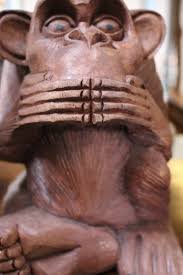 It's true. Friends of writers understand this aspect intimately, and have long accepted "Whatever they say will be held against them." But typically there are no deal breakers in their personality. By virtue of being around writers all the time they've come to exist in the world in a genuine and compassionate way. They know writers are intelligent and understand context and begin to trust us to not recount a situation outside of the space it was experienced.I write from personal experience. I write fiction. Not memoir or non-fiction. But what I've found is that to make fiction unique and your own, writing from personal experience is the best way to capture powerful and memorable moments.
It's true. Friends of writers understand this aspect intimately, and have long accepted "Whatever they say will be held against them." But typically there are no deal breakers in their personality. By virtue of being around writers all the time they've come to exist in the world in a genuine and compassionate way. They know writers are intelligent and understand context and begin to trust us to not recount a situation outside of the space it was experienced.I write from personal experience. I write fiction. Not memoir or non-fiction. But what I've found is that to make fiction unique and your own, writing from personal experience is the best way to capture powerful and memorable moments.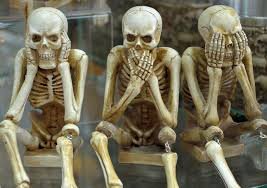 My first novel, which is in the revision phase right now, is about 90% true. In fact, it's so true all I had to do was change names and alter a few personalities. Scenes are arranged to maintain a story arch and to create dramatic action, but every scene is based on truth, based on a real experience. Sometimes you live through a series of events and, as a writer, you can't believe your unfortunate and fortunate luck. It is so terrible and magnificent, simultaneously, that you say to yourself, "This is playing out like a novel." Then a year after you've left the situation, you have distance enough to write about it. That's what happened to me. It was a hard situation to live through, but worth every word on the page.So if you find yourself in proximity to a writer, don't be surprised if you end up fictionalized among the pages. And if you don't want to be a villain in fiction, then don't be one in real life.
My first novel, which is in the revision phase right now, is about 90% true. In fact, it's so true all I had to do was change names and alter a few personalities. Scenes are arranged to maintain a story arch and to create dramatic action, but every scene is based on truth, based on a real experience. Sometimes you live through a series of events and, as a writer, you can't believe your unfortunate and fortunate luck. It is so terrible and magnificent, simultaneously, that you say to yourself, "This is playing out like a novel." Then a year after you've left the situation, you have distance enough to write about it. That's what happened to me. It was a hard situation to live through, but worth every word on the page.So if you find yourself in proximity to a writer, don't be surprised if you end up fictionalized among the pages. And if you don't want to be a villain in fiction, then don't be one in real life.
Support a Native owned Etsy shop, Allies United, where I offer unique merch for allies of social justice movements, like MMIW, Native Lives Matter and Black Lives Matter. Take a look inside my Etsy shop here: etsy.com/shop/AlliesUnited.
(Works Cited: Images were borrowed from PxHere and Pixabay)
Capitalism Down the Interstate
I was in grad school when a professor asked, "What metaphor would you use to describe how power structures stay intact?" We were studying Faucoult and had come to his explanation of how individuals give up their power to others, with his example of a moving ship and how everyone does their part to keep the ship moving forward and are in fear of what would happen if the ship stopped moving. I agree with Faucoult's analogy. It makes sense in most situations. In a modern context though, I'm thinking more along the lines of interstates.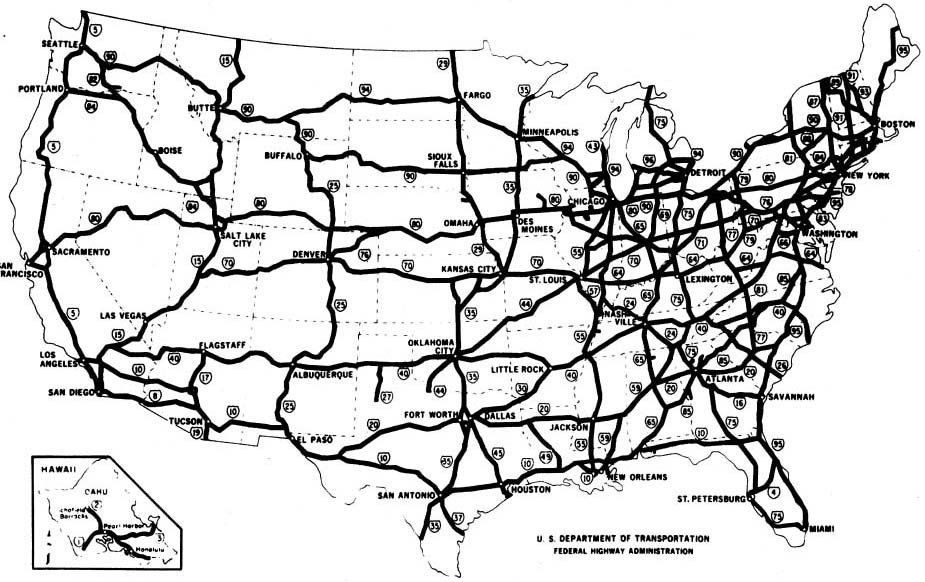 I'm about to head to Santa Fe, New Mexico from Tahlequah, Oklahoma next week. My oldest son is graduating from the Santa Fe Indian School. I've spent a lot of time on I-40 over the years. I grew up between Tahlequah and Lawton, OK, but moved out to Santa Fe, NM and spent 10 years out there before moving back to Tahlequah. My oldest three kids grew up out there.Staring at that road for long periods gives you opportunity to contemplate life's many questions. Not that I need to stare at a road to do that. My brain is hardwired for such reflection so a cup of coffee is enough to get me going. But as I've thought about the above question over the years I've attempted to apply several different metaphors to better grasp power dynamics in group formations.
I'm about to head to Santa Fe, New Mexico from Tahlequah, Oklahoma next week. My oldest son is graduating from the Santa Fe Indian School. I've spent a lot of time on I-40 over the years. I grew up between Tahlequah and Lawton, OK, but moved out to Santa Fe, NM and spent 10 years out there before moving back to Tahlequah. My oldest three kids grew up out there.Staring at that road for long periods gives you opportunity to contemplate life's many questions. Not that I need to stare at a road to do that. My brain is hardwired for such reflection so a cup of coffee is enough to get me going. But as I've thought about the above question over the years I've attempted to apply several different metaphors to better grasp power dynamics in group formations. The rules of road can be transferred to the subtle social rules subconsciously agreed upon between group members. As I sit behind the wheel and watch the road pass me by, I'm constantly aware of the rules of road and which will keep me safe. When you're going 75 mph or more you pay close attention to what's going to keep you safe.It's not that I'm always going to abide by those rules. I'll speed anywhere from five to fifteen miles over the speed limit, as long as there are no police officers around. And I'll not use a blinker if there are no other vehicles around. Things that make sense to me but don't coincide with the established rules.It's not that we've all agreed to abide by these rules. It's that we've all chosen to utilize the road. Psychologically we feel it's the safest way to get where we are going. If at the onset we chose to use the system, then we agree to give our power to it. If we're driving and we find there are certain people who are getting special treatment and are not penalized or people who are traveling in worse or better vehicles, we expect the rules of the road or the people who enforce those rules to make things right. We expect people who have already given over their power to the system to change the system.
The rules of road can be transferred to the subtle social rules subconsciously agreed upon between group members. As I sit behind the wheel and watch the road pass me by, I'm constantly aware of the rules of road and which will keep me safe. When you're going 75 mph or more you pay close attention to what's going to keep you safe.It's not that I'm always going to abide by those rules. I'll speed anywhere from five to fifteen miles over the speed limit, as long as there are no police officers around. And I'll not use a blinker if there are no other vehicles around. Things that make sense to me but don't coincide with the established rules.It's not that we've all agreed to abide by these rules. It's that we've all chosen to utilize the road. Psychologically we feel it's the safest way to get where we are going. If at the onset we chose to use the system, then we agree to give our power to it. If we're driving and we find there are certain people who are getting special treatment and are not penalized or people who are traveling in worse or better vehicles, we expect the rules of the road or the people who enforce those rules to make things right. We expect people who have already given over their power to the system to change the system.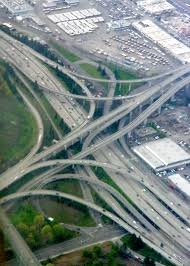 What's peculiar is once we've started on a singular path, mimesis keeps us locked into the system. We can pass all this landscape and watch as potential for freedom passes us by at every second of the day and we can still choose to follow the rules of the road. Why? Because these roads give us options. We can turn left and right and follow whatever road we want. The system is what gives us our options. The system lays out the roads. Social psychology dictates that we cannot desire solely on our own. Let me say that again: We cannot desire solely on our own. We know what to do for basic survival, like eat, drink, and find shelter. Once those basic needs are taken care of, people do not know what to do with themselves. We need other people to tell us what to desire. We need options. The roads are paved and laid out in front of us before we are born.The current corporate philanthropic venture of supporting "cradle to career" programs speaks best to how human programming works. We are taught from infancy to build certain characteristics, the rich have creative freedom while the poor learn rote behavior, but both are geared toward "staying on the road" and "maintaining the road as the only viable option."Parents want the best for their children (I should know I have six) so we teach our children those characteristics and believe this is the best modality for survival. What we don't consider is that we--ourselves--have been trained to desire the system we've been born in. It doesn't necessarily mean it's the best. It just means it's what we know. We get hints of that when we see certain people of certain communities mangled in crashes alongside the road. In disproportionate numbers. But we are so bought into the system, we assume the police are going to do the right thing and take care of those people and somehow the rules of the road will keep everyone safe. And we just keep driving by. Never taking action ourselves to stop and help. And we teach our children to do the same.
What's peculiar is once we've started on a singular path, mimesis keeps us locked into the system. We can pass all this landscape and watch as potential for freedom passes us by at every second of the day and we can still choose to follow the rules of the road. Why? Because these roads give us options. We can turn left and right and follow whatever road we want. The system is what gives us our options. The system lays out the roads. Social psychology dictates that we cannot desire solely on our own. Let me say that again: We cannot desire solely on our own. We know what to do for basic survival, like eat, drink, and find shelter. Once those basic needs are taken care of, people do not know what to do with themselves. We need other people to tell us what to desire. We need options. The roads are paved and laid out in front of us before we are born.The current corporate philanthropic venture of supporting "cradle to career" programs speaks best to how human programming works. We are taught from infancy to build certain characteristics, the rich have creative freedom while the poor learn rote behavior, but both are geared toward "staying on the road" and "maintaining the road as the only viable option."Parents want the best for their children (I should know I have six) so we teach our children those characteristics and believe this is the best modality for survival. What we don't consider is that we--ourselves--have been trained to desire the system we've been born in. It doesn't necessarily mean it's the best. It just means it's what we know. We get hints of that when we see certain people of certain communities mangled in crashes alongside the road. In disproportionate numbers. But we are so bought into the system, we assume the police are going to do the right thing and take care of those people and somehow the rules of the road will keep everyone safe. And we just keep driving by. Never taking action ourselves to stop and help. And we teach our children to do the same. The more times you stop. The more you are no longer afraid of the wilderness. The more you will change mimesis. We can show people how to travel off the beaten path by our own actions. If social psychology is correct and we do not know how to desire solely on our own, then it is up to us to show people how to desire a different direction. More importantly, show people there is nothing to be afraid of. Fear confines us to the rules of the road. But to be fearless, stop the vehicle, and take steps into the wilderness can give us options we've never conceived . Who knows? Maybe those options won't leave anyone mangled. The road we're on has historically proven there will always be victims. Break away and do something different. Step away from the "ho-hum it's been done," and reconstruct mimetic design.
The more times you stop. The more you are no longer afraid of the wilderness. The more you will change mimesis. We can show people how to travel off the beaten path by our own actions. If social psychology is correct and we do not know how to desire solely on our own, then it is up to us to show people how to desire a different direction. More importantly, show people there is nothing to be afraid of. Fear confines us to the rules of the road. But to be fearless, stop the vehicle, and take steps into the wilderness can give us options we've never conceived . Who knows? Maybe those options won't leave anyone mangled. The road we're on has historically proven there will always be victims. Break away and do something different. Step away from the "ho-hum it's been done," and reconstruct mimetic design.
Support a Native owned Etsy shop, Allies United, where I offer unique merch for allies of social justice movements, like MMIW, Native Lives Matter and Black Lives Matter. Take a look inside my Etsy shop here: etsy.com/shop/AlliesUnited.
(Works Cited: The images were borrowed from Wikimedia Commons, PxHere, nps.gov, and Wikipedia.)
Drama Triangle: Enhancing Victimhood with Vengeance and Sacrifice
I don't denounce structuralism. Every time I watch a Disney or Pixar movie with my daughters and tears start welling up in my eyes by simple structural tactics, like music and camera angles, I'm reminded there is a reason it works. But I'm a literary writer and we are defiant bastards and we like to take structuralism and bend it our will. So we can look in the mirror and say to ourselves, "The industry will not make me a slave."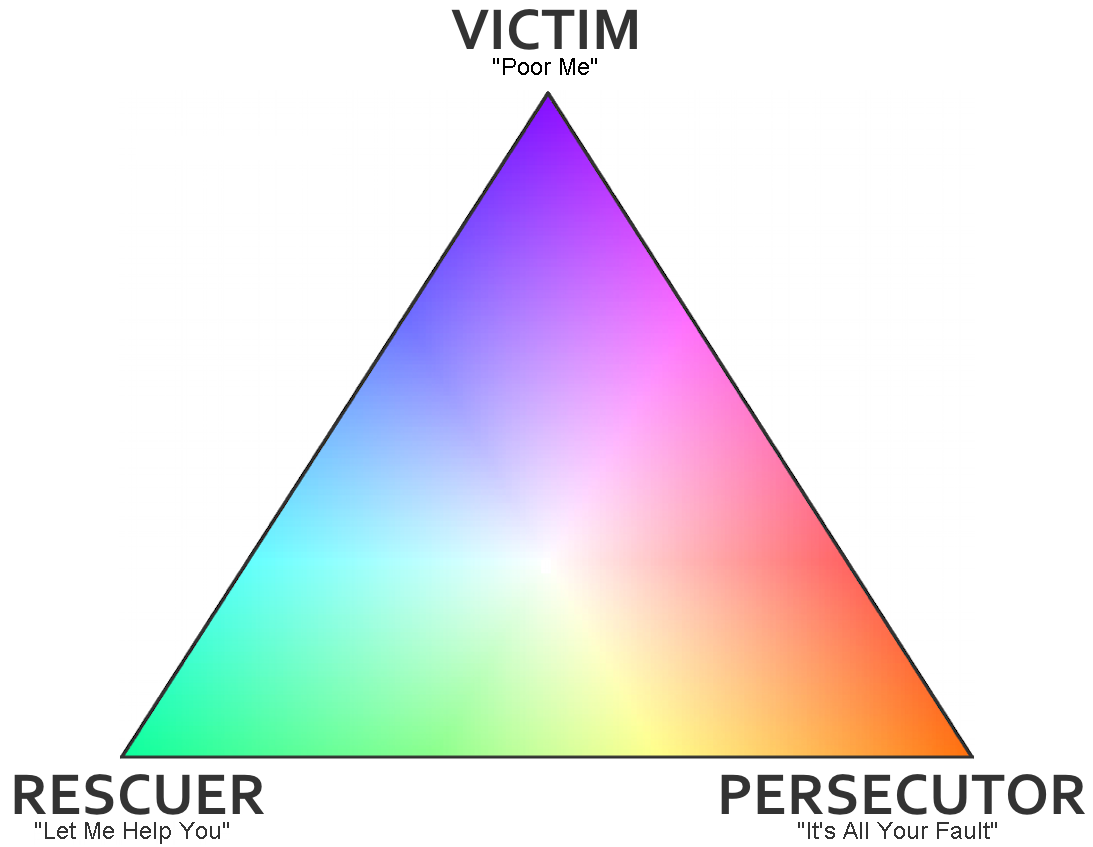 The above diagram is one of the tools I use to write fiction. I learned this from an adjunct professor at the Institute of American Indian Arts, where I obtained my BFA in Creative Writing. It has helped tremendously. I use it over and over and weigh each character against it.So to create a dynamic character in your story, you have to apply all three to your main characters, including the antagonist. This will have your character looking three dimensional, like a real human being. Easy enough.But I'm a nerd and a writerly nerd at that so I think about writing often and techniques and how they're applicable to what I'm working on. Right now, I'm revising my first novel so I spend a lot of time thinking about the above diagram.Mostly, of recent, I've been thinking of the victim dimension, and it, like the other two, can appear to be straight forward. Then I start to ask: What kind of victim? How many victim types can there be? Then I start to make an interesting list. There is the wallow in self pity victim. There is the weaponize my victimhood victim. There is the vengeful victim. And then there is the savior victim.What I've come to find is a character is more dynamic and interesting and resonates when the character can exhibit as many traits of the victim as possible. Why? For the same reason you want your main character to have all three dimensions in the diagram above, because it makes them appear more complex, more real, more human.What is more interesting to me is that when you mix victim with the rescuer you get the savior victim (those who have been violated and have returned to rescue you from your own brutality), and when you mix victim with the persecutor you get the vengeful victim (those who have been violated and have returned to make you pay). The main character in my novel, Dean, plays victim/rescuer to certain individuals in the novel, but toward the antagonist he plays victim/persecutor.But what makes me most excited about my novel is when Dean exacts vengeance on the antagonist he is doing it in the name of all the victims the antagonist has metaphorically killed in the novel, so subsequently he blends rescuer and persecutor. More or less, he throws himself on a grenade.What are your thoughts? How might you blend the three different roles listed above? Have you applied the drama triangle to your writing? What was the outcome?(Works Cited: The above image was borrowed from Wikimedia commons.)
The above diagram is one of the tools I use to write fiction. I learned this from an adjunct professor at the Institute of American Indian Arts, where I obtained my BFA in Creative Writing. It has helped tremendously. I use it over and over and weigh each character against it.So to create a dynamic character in your story, you have to apply all three to your main characters, including the antagonist. This will have your character looking three dimensional, like a real human being. Easy enough.But I'm a nerd and a writerly nerd at that so I think about writing often and techniques and how they're applicable to what I'm working on. Right now, I'm revising my first novel so I spend a lot of time thinking about the above diagram.Mostly, of recent, I've been thinking of the victim dimension, and it, like the other two, can appear to be straight forward. Then I start to ask: What kind of victim? How many victim types can there be? Then I start to make an interesting list. There is the wallow in self pity victim. There is the weaponize my victimhood victim. There is the vengeful victim. And then there is the savior victim.What I've come to find is a character is more dynamic and interesting and resonates when the character can exhibit as many traits of the victim as possible. Why? For the same reason you want your main character to have all three dimensions in the diagram above, because it makes them appear more complex, more real, more human.What is more interesting to me is that when you mix victim with the rescuer you get the savior victim (those who have been violated and have returned to rescue you from your own brutality), and when you mix victim with the persecutor you get the vengeful victim (those who have been violated and have returned to make you pay). The main character in my novel, Dean, plays victim/rescuer to certain individuals in the novel, but toward the antagonist he plays victim/persecutor.But what makes me most excited about my novel is when Dean exacts vengeance on the antagonist he is doing it in the name of all the victims the antagonist has metaphorically killed in the novel, so subsequently he blends rescuer and persecutor. More or less, he throws himself on a grenade.What are your thoughts? How might you blend the three different roles listed above? Have you applied the drama triangle to your writing? What was the outcome?(Works Cited: The above image was borrowed from Wikimedia commons.)
Voice Echoes in Mimetic Hearing
How to hear? Not to listen, like saying "You need to pay attention," but instead how we create consistency in our voice as artists. How do we hear voice? How do we recognize what is uniquely our own? Is one obstacle. Then the next. How do we reproduce it again and again? It might seem easy on the surface. Once you do something, just do that same thing again. Then again. Then again. And on and on. But tell that to an artist. If you've ever shot a three pointer on the basketball court, you know it's muscle memory that allows the odds of hitting those threes over and over. When you're first starting to understand voice in your art you have moments when you hit nothing but net. Then you have moments when you air ball shot after shot, and you start to question, "How did I make those shots before?"As a creative writer, I've written stories with a certain voice and this voice was born out of my Kiowa community, which is interlaced with the Comanche community (many of my relatives are half Comanche). In my short story, Our Dance, the narrator is from Lawton, Oklahoma and he recounts when he received a per capita check from the Kiowa tribe. The story reflects my and other family member's experiences when we received money at the age of 18. The story wrote itself. The voice came so quickly and naturally it was an out of body experience to write it. Some spirit from within took me over and used me to write the story--was how it felt.Then I wrote other stories trying to capture similarly the Cherokee voices in my Cherokee community of Tahlequah, Oklahoma. My reason? I wanted to show people the beauty in our differences. How unique each tribe is. Often we Native Americans are lumped into the same group, and we do share a common experience and this history undoubtedly binds us together for many generations to come, and at the same time people from the outside often adhere to ubiquity and miss our essence as individual tribes. This is a great modality for a writer, but it spelled doom for my ability to capture a singularly unique voice as an artist.What was the consequence?I went into a tailspin for several years. Mimesis often locks me in circles that produce interesting pieces of literature, but it can also bind me into a cycle (or obsession) with topics that are distracting, like battling ubiquity.
It might seem easy on the surface. Once you do something, just do that same thing again. Then again. Then again. And on and on. But tell that to an artist. If you've ever shot a three pointer on the basketball court, you know it's muscle memory that allows the odds of hitting those threes over and over. When you're first starting to understand voice in your art you have moments when you hit nothing but net. Then you have moments when you air ball shot after shot, and you start to question, "How did I make those shots before?"As a creative writer, I've written stories with a certain voice and this voice was born out of my Kiowa community, which is interlaced with the Comanche community (many of my relatives are half Comanche). In my short story, Our Dance, the narrator is from Lawton, Oklahoma and he recounts when he received a per capita check from the Kiowa tribe. The story reflects my and other family member's experiences when we received money at the age of 18. The story wrote itself. The voice came so quickly and naturally it was an out of body experience to write it. Some spirit from within took me over and used me to write the story--was how it felt.Then I wrote other stories trying to capture similarly the Cherokee voices in my Cherokee community of Tahlequah, Oklahoma. My reason? I wanted to show people the beauty in our differences. How unique each tribe is. Often we Native Americans are lumped into the same group, and we do share a common experience and this history undoubtedly binds us together for many generations to come, and at the same time people from the outside often adhere to ubiquity and miss our essence as individual tribes. This is a great modality for a writer, but it spelled doom for my ability to capture a singularly unique voice as an artist.What was the consequence?I went into a tailspin for several years. Mimesis often locks me in circles that produce interesting pieces of literature, but it can also bind me into a cycle (or obsession) with topics that are distracting, like battling ubiquity.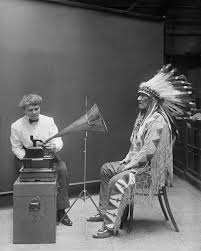 Ultimately, I learned I can address this issue of homogeneity in other ways. I've come full circle recently and am starting to look toward the voice that came out of my Kiowa community as the voice I'm going to use in my literature. I'm revising my first novel and yesterday I came to chapter 13 and somehow my Kiowa "voice" started to manifest. I suddenly could "hear" the tone and pitch of my community laced in the words. The voice is a little different than when I wrote Our Dance, but I'm excited to see how it has grown. My advice for other writers: hear your community, hear your family, pause and hear. Don't listen, because you'll only focus on the words. Hear the vowels rise or drop. Hear the absence of consonants. Hear the subtle pauses.Then when you hear the voice you're going to use in your art: capture it quickly. Produce something you can return to time and again. Every time you reread that story, you look at that painting, or you sing that song take it and transfer it into the next project and then the next. Always go back to the original voice in the same way you always go back home. Even if it's just to remember where you came from.
Ultimately, I learned I can address this issue of homogeneity in other ways. I've come full circle recently and am starting to look toward the voice that came out of my Kiowa community as the voice I'm going to use in my literature. I'm revising my first novel and yesterday I came to chapter 13 and somehow my Kiowa "voice" started to manifest. I suddenly could "hear" the tone and pitch of my community laced in the words. The voice is a little different than when I wrote Our Dance, but I'm excited to see how it has grown. My advice for other writers: hear your community, hear your family, pause and hear. Don't listen, because you'll only focus on the words. Hear the vowels rise or drop. Hear the absence of consonants. Hear the subtle pauses.Then when you hear the voice you're going to use in your art: capture it quickly. Produce something you can return to time and again. Every time you reread that story, you look at that painting, or you sing that song take it and transfer it into the next project and then the next. Always go back to the original voice in the same way you always go back home. Even if it's just to remember where you came from.
Support a Native owned Etsy shop, Allies United, where I offer unique merch for allies of social justice movements, like MMIW, Native Lives Matter and Black Lives Matter. Take a look inside my Etsy shop here: etsy.com/shop/AlliesUnited.
(Cited: Images were borrowed from Wikipedia and Wikimedia Common).
Rewind Oscar's Tape: The Making of an Introverted In'din Nerd
That's how far back we're about to go. I'm going to use a simile only a certain generation will understand. Remember tapes? It kind of sounds odd to say now. Tapes. Sounds like a prehistoric infection. If my kids overheard me ask someone if they "had tapes" when they were a teenager, they would think it was an STD. Like an old school slang term for gonorrhea. But I digress, as usual. I'm about to rewind my tape and take young and old back to my days as an introverted neophyte surviving on southern sweet tea and tapes.
 You could say it was exacerbated by the abuse from my father, but I had a hard time socializing. The last grade I completed was the sixth grade. I dropped out of school at the age of thirteen years old. How does a thirteen year old go missing from the public school system without notice? You might ask. Well there wasn't much expectation for us Natives to do anything other than fail in life so when I stopped going to school, my mother withdrew me, and the school system never asked any questions.
You could say it was exacerbated by the abuse from my father, but I had a hard time socializing. The last grade I completed was the sixth grade. I dropped out of school at the age of thirteen years old. How does a thirteen year old go missing from the public school system without notice? You might ask. Well there wasn't much expectation for us Natives to do anything other than fail in life so when I stopped going to school, my mother withdrew me, and the school system never asked any questions.
I'd spend months without interacting with anyone other than my mother and the two grandmothers I lived with. I spent the majority of my time playing video games like Rygar, Contra, and Zelda on my Nintendo. When I wasn't playing video games I was reading books (Stephen King and fantasy novels like Dragonlance) or I was listening to gangster rape or writing bizarre stories of great imagination. In other words, I was anywhere but here on planet Earth.
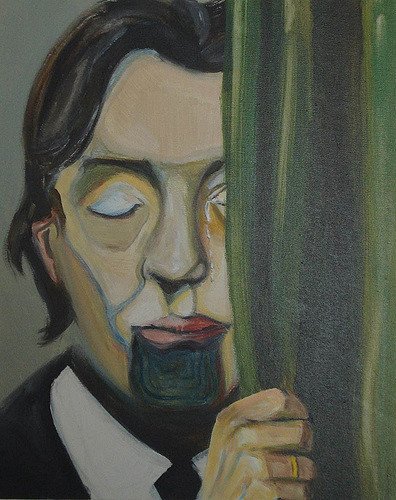 I'd come out of my introverted trance of escape when I'd go visit my cousin, Quincy, in Lawton, Oklahoma. My family out there was very active in Kiowa and Comanche cultural activities so I'd get a good dose of culture and community. My aunt, Linda, is like a mother to me and her husband, Uncle Butch, was a father figure when I didn't have one.
I'd come out of my introverted trance of escape when I'd go visit my cousin, Quincy, in Lawton, Oklahoma. My family out there was very active in Kiowa and Comanche cultural activities so I'd get a good dose of culture and community. My aunt, Linda, is like a mother to me and her husband, Uncle Butch, was a father figure when I didn't have one.
Similarly, I had a close friend in Tahlequah, Brandon, who would bring me out of isolation on the occasional weekends. He was extroverted and knew a lot of people in Tahlequah. Through him I could pretend to be normal for short time periods. His mother, also Linda, was another mother figure in my life. Brandon's family took me under their wing and I had time periods where I did family type activities with them.
I was raised by a single mother who was undiagnosed with Asperger's syndrome. She is very intelligent and highly calculated, but she does not have the social skills you would want a mother to have. Her reasoning is more logical and practical. She can get overstimulated by social environments so she wasn't trying to take any of her children to community or cultural functions. If it wasn't for the above mentioned individuals then I would have never had opportunities to socialize.
I fall under the umbrella of Asperger's syndrome, but I'm not as far on the spectrum to full Asperger's as my mother. I can understand (now) how my mother thinks and looks at the world. I don't criticize her because I understand she is biologically constructed to be the way she is. In fact, I have my level of intelligence and high inclination toward creativity because of my mother's genetics. A lot of people say I look like her and act like her. I write fiction. My mother does traditional beadwork. I play the guitar. My mother hand makes traditional quilts. While we have chosen different skills, we are the same in intelligence and creativity. Which are both symptoms of Asperger's.
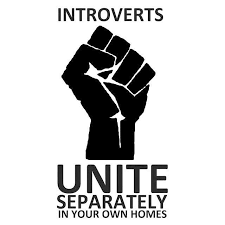 Certainly my introvertedness can be contributed to a number of aspects in my childhood, but I've had a lot of jobs in my adult life where I was taught to be extroverted. I've taught English classes at the University of Oklahoma, and I've facilitated experiential education programs with a hundred participants. I don't shy away from attention. In fact, I enjoy attention, but I'm not competing to get it.
Certainly my introvertedness can be contributed to a number of aspects in my childhood, but I've had a lot of jobs in my adult life where I was taught to be extroverted. I've taught English classes at the University of Oklahoma, and I've facilitated experiential education programs with a hundred participants. I don't shy away from attention. In fact, I enjoy attention, but I'm not competing to get it.
As you get older you get more comfortable in who you are. I'm an artist and an intellectual. It may be by genetic and environmental design but it is who I am. I'm content. I don't desire to be anything else. It'd be like asking a shark to be lion.
Support a Native owned Etsy shop, Allies United, where I offer unique merch for allies of social justice movements, like MMIW, Native Lives Matter and Black Lives Matter. Take a look inside my Etsy shop here: etsy.com/shop/AlliesUnited.
Impetus for Creative Spawn
Like angels and devils breading hordes of bastard monstrosities, the impetus for the type of stories I like to write comes out of the comingling of two polar opposite ideologies. One is quite happy frolicking with idealism and innocence, while the other takes great pleasure in torturing countless victims. Together they make for unpleasant friends. The type to cater to your highest morals and simultaneously use those morals to bash you into the dirt.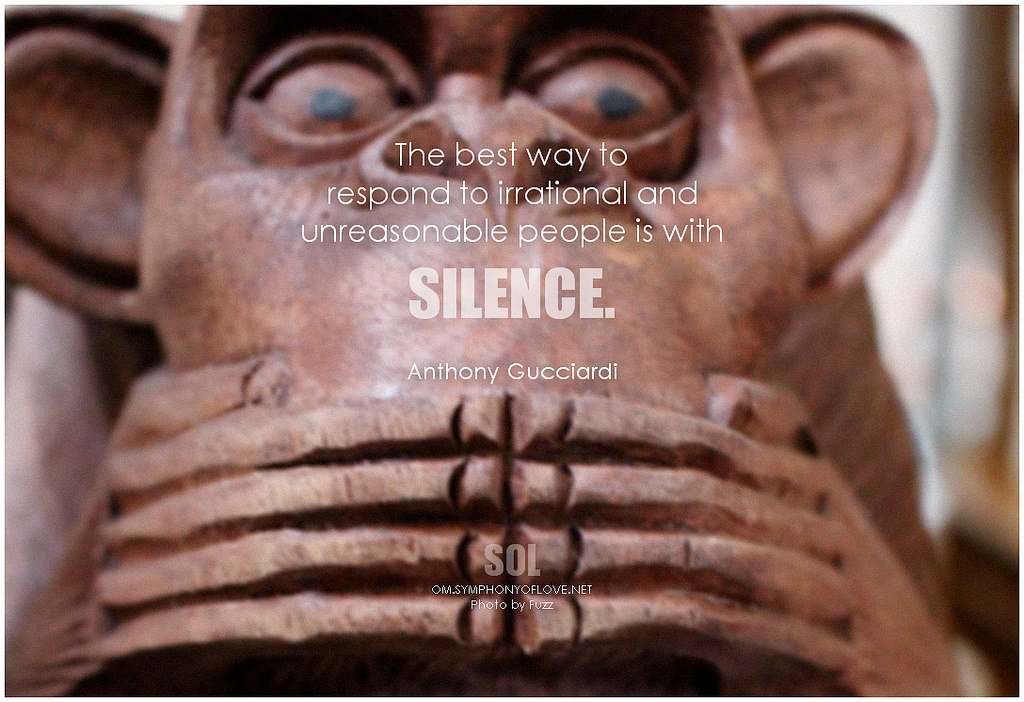 More or less, I can't write a story (or complete a story I should say) unless I'm telling on someone. I've thought about this extensively. Largely because I was stuck for a long time, years even, on getting a collection of short stories to completion. Now I'm writing a novel and burning through the second revision phase. I think a lot about writerly things, like why I write, what drives me, why did I get stuck, and how did I get unstuck? When you're deep in the muck that is stagnation you will contemplate ideas and processes you never would in other circumstances.One of the conclusions I realized recently was that I could not and still can not complete, finish, finalize, bring to fruition, totalize a story unless I am telling on someone. I always write from real life experiences. I fictionalize small things here and there to create a strong story arch, but more or less everything I've written has been about something that has truly happened to me, or to someone around me.In the previously mentioned short story collection, Reflections on the Water, I had a number of stories that were fantastic conceptually. They would have made for great stories, and maybe they will one day when I go back to them. But what I discovered was that the stories didn't keep me interested because I wasn't trying to get someone in trouble. Meaning, the characters weren't divulging something terrible in each other.I tend to like the big issues and the most disgusting behavior, like racism, sexism, homophobia, and all the oppressive qualities that they tend to come with. Typcially, there also has to be systemic issues that reflect the micro behavior, so if a character says something racist against Native people (or dark skinned Native people) we get that people live isolated lives and keep their circles very small because they aren't emotionally strong enough to expand their circle. They're emotionally like a child and need any and every form of protection to make them feel all snuggly safe.What makes the issue more interesting, or interesting enough for me to complete a short story or add into a novel, is if the racism is supported by an entire system. Not necessarily an entire community, but it could be that. I like things that show systemic issues on a smaller scale than community or national. It makes the issue more tangible and readers, including myself, can actually witness the details of such gross behavior. So if there is an organization that is supporting oppression of Native voices (or dark skinned Native voices), then it becomes more tangible, because readers will immediately reflect on their own place of work and determine if they run into the same issue. They'll either recognize it and see how the issue is real and needs to be changed. Or they will not recognize it and say to themselves "What's wrong with the people in this book/community?" Either type of judgment works for me. I'm looking for a reaction that will drive people to action.I've started great stories that made it through several drafts and one in particular that made it all the way to what I thought was a final draft, but they turned out to lose steam. Why? Because of the absence of micro and macro societal abuse. If one or the other is singularly present in the story it will fail. If it has both? Micro and macro? The statement along with the condoning voices in the room. That's what makes for a good story. A story readers will want to read over and over again.
More or less, I can't write a story (or complete a story I should say) unless I'm telling on someone. I've thought about this extensively. Largely because I was stuck for a long time, years even, on getting a collection of short stories to completion. Now I'm writing a novel and burning through the second revision phase. I think a lot about writerly things, like why I write, what drives me, why did I get stuck, and how did I get unstuck? When you're deep in the muck that is stagnation you will contemplate ideas and processes you never would in other circumstances.One of the conclusions I realized recently was that I could not and still can not complete, finish, finalize, bring to fruition, totalize a story unless I am telling on someone. I always write from real life experiences. I fictionalize small things here and there to create a strong story arch, but more or less everything I've written has been about something that has truly happened to me, or to someone around me.In the previously mentioned short story collection, Reflections on the Water, I had a number of stories that were fantastic conceptually. They would have made for great stories, and maybe they will one day when I go back to them. But what I discovered was that the stories didn't keep me interested because I wasn't trying to get someone in trouble. Meaning, the characters weren't divulging something terrible in each other.I tend to like the big issues and the most disgusting behavior, like racism, sexism, homophobia, and all the oppressive qualities that they tend to come with. Typcially, there also has to be systemic issues that reflect the micro behavior, so if a character says something racist against Native people (or dark skinned Native people) we get that people live isolated lives and keep their circles very small because they aren't emotionally strong enough to expand their circle. They're emotionally like a child and need any and every form of protection to make them feel all snuggly safe.What makes the issue more interesting, or interesting enough for me to complete a short story or add into a novel, is if the racism is supported by an entire system. Not necessarily an entire community, but it could be that. I like things that show systemic issues on a smaller scale than community or national. It makes the issue more tangible and readers, including myself, can actually witness the details of such gross behavior. So if there is an organization that is supporting oppression of Native voices (or dark skinned Native voices), then it becomes more tangible, because readers will immediately reflect on their own place of work and determine if they run into the same issue. They'll either recognize it and see how the issue is real and needs to be changed. Or they will not recognize it and say to themselves "What's wrong with the people in this book/community?" Either type of judgment works for me. I'm looking for a reaction that will drive people to action.I've started great stories that made it through several drafts and one in particular that made it all the way to what I thought was a final draft, but they turned out to lose steam. Why? Because of the absence of micro and macro societal abuse. If one or the other is singularly present in the story it will fail. If it has both? Micro and macro? The statement along with the condoning voices in the room. That's what makes for a good story. A story readers will want to read over and over again.
Support a Native owned Etsy shop, Allies United, where I offer unique merch for allies of social justice movements, like MMIW, Native Lives Matter and Black Lives Matter. Take a look inside my Etsy shop here: etsy.com/shop/AlliesUnited.
(Works Cited: The image above was borrowed from flicr.)
When Reincarnated Narratives are Lost to Unpredictable Rollercoasters
"How many lives do you think you have lived?" someone asked me, and I responded "In this lifetime, I'm on seven." I'm sure she meant previous lives, as in reincarnation in its literal meaning, but if you're going to have a conversation with an artist you have to understand our minds work in symbols. I'm going to speak metaphorically before I speak literally. It makes more sense to do so when you consider the multifarious dynamics in life. Everything is fluid, ever changing, like narratives and lifetimes and phases, making for a rollercoaster ride in the dark. Today I'm reflecting on how my writing process correlates to where I'm at in life. There are two time periods I'm thinking of specifically. The now, and the just before now. My most recent life was a life of being "stuck" and it took drastic measures to become unstuck. Now I'm in the life of freedom, where I can freely write and be creative (ultimately be myself) without any interference.I was working on a collection or short stories in the previous life and I've since abandoned these short stories. I wasn't sure why. I'm still not completely certain but I have a better understanding about my process during that time period and how it reeked of stagnation. I abandoned the collection of short stories because psychologically I felt my spirit drain as soon as I would go into revising the stories. Some of the stories where completed and published, like Our Dance and Time like Masks, and others were almost to completion while some still needed heavy revisions.
Today I'm reflecting on how my writing process correlates to where I'm at in life. There are two time periods I'm thinking of specifically. The now, and the just before now. My most recent life was a life of being "stuck" and it took drastic measures to become unstuck. Now I'm in the life of freedom, where I can freely write and be creative (ultimately be myself) without any interference.I was working on a collection or short stories in the previous life and I've since abandoned these short stories. I wasn't sure why. I'm still not completely certain but I have a better understanding about my process during that time period and how it reeked of stagnation. I abandoned the collection of short stories because psychologically I felt my spirit drain as soon as I would go into revising the stories. Some of the stories where completed and published, like Our Dance and Time like Masks, and others were almost to completion while some still needed heavy revisions. This collection of short stories was titled Reflections on the Water. And I had to push myself to gather these stories together. It was tremendous spiritual labor to do so. There was something that kept pulling me back. I didn't have the same energy to revise the stories. Our Dance and Time like Masks were written with a different energy but I had written those stories in the lifetime before my last life (in the fifth life) so I had a different energy. In the sixth life, there was something vampiric keeping me from being fully submersed in my writing. I hated it.Needless to say Reflections on the Water didn't go anywhere. The collection sits on one of my flash drives in limbo. I don't know what I'm going to do with the stories. Maybe they will be reincarnated into this life (following me on my writing journey), but for now I've left them behind. I'm not with them anymore. I'm somewhere else in a different lifetime. But I think of these stories from time to time, like thinking of an old friend from childhood.I had even tried to gather energy for the collection through an online funding platform, Indiegogo. But I think ultimately I was trying desperately to make myself finish this collection. I was forcing the creativity or trying to do so. And if you're an artist you know there is no making creativity do what you want it to do. It comes on days when you least expect and doesn't when you wished it would. I think I had to relearn to allow creativity to take me over, to allow it inside, as opposed to forcing it. You may beckon the muse differently, but mine is temperamental with a short fuse and I have to placate her with modesty and humility.These days I sit with my writing and wait. I humble myself to its power. I come with more patience than I had before, maybe because I'm older or maybe because I've been burned by the beast and now know better. I've been reincarnated and my writing process has as well. I come at my stories differently than I had a few years ago. The ride in the dark has been a rollercoaster and it's exciting to know I'm on a new path and I'm excited to think of the lives to come.
This collection of short stories was titled Reflections on the Water. And I had to push myself to gather these stories together. It was tremendous spiritual labor to do so. There was something that kept pulling me back. I didn't have the same energy to revise the stories. Our Dance and Time like Masks were written with a different energy but I had written those stories in the lifetime before my last life (in the fifth life) so I had a different energy. In the sixth life, there was something vampiric keeping me from being fully submersed in my writing. I hated it.Needless to say Reflections on the Water didn't go anywhere. The collection sits on one of my flash drives in limbo. I don't know what I'm going to do with the stories. Maybe they will be reincarnated into this life (following me on my writing journey), but for now I've left them behind. I'm not with them anymore. I'm somewhere else in a different lifetime. But I think of these stories from time to time, like thinking of an old friend from childhood.I had even tried to gather energy for the collection through an online funding platform, Indiegogo. But I think ultimately I was trying desperately to make myself finish this collection. I was forcing the creativity or trying to do so. And if you're an artist you know there is no making creativity do what you want it to do. It comes on days when you least expect and doesn't when you wished it would. I think I had to relearn to allow creativity to take me over, to allow it inside, as opposed to forcing it. You may beckon the muse differently, but mine is temperamental with a short fuse and I have to placate her with modesty and humility.These days I sit with my writing and wait. I humble myself to its power. I come with more patience than I had before, maybe because I'm older or maybe because I've been burned by the beast and now know better. I've been reincarnated and my writing process has as well. I come at my stories differently than I had a few years ago. The ride in the dark has been a rollercoaster and it's exciting to know I'm on a new path and I'm excited to think of the lives to come.
Support a Native owned Etsy shop, Allies United, where I offer unique merch for allies of social justice movements, like MMIW, Native Lives Matter and Black Lives Matter. Take a look inside my Etsy shop here: etsy.com/shop/AlliesUnited.
(Works Cited: The images were borrowed from PxHere and Wikimedia.)
Boxes Echo Eternal Conformity
We love the sound of our own voices, and there's a condition associated with narcissism that calms people when they look at pictures of themselves (if you've ever wondered why we take so many selfies). The same goes for values. We like to hear our own values echoed back to us. If we took a real look at our circle of friends we'd find people who have the same value system. Yeah, there might be some differences in opinion, but no deal breakers. Just echoes of eternal conformity.
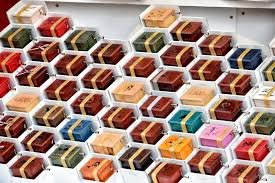 I get agitated when I feel comfortable. I'm not sure why. Maybe I'm genetically predisposed to nonconformity (as my Aspie profile seems to dictate). Because of this I tend to like being in uncomfortable situations. I like being the odd one out. I don't make it into people's circle of friends. Living a life on the periphery leaves me with a life lived under the bus, true, but I wouldn't have it any other way. If someone else doesn't disrupt my normalcy, I'll disrupt it myself, and no one wants that because it's not pretty.
I get agitated when I feel comfortable. I'm not sure why. Maybe I'm genetically predisposed to nonconformity (as my Aspie profile seems to dictate). Because of this I tend to like being in uncomfortable situations. I like being the odd one out. I don't make it into people's circle of friends. Living a life on the periphery leaves me with a life lived under the bus, true, but I wouldn't have it any other way. If someone else doesn't disrupt my normalcy, I'll disrupt it myself, and no one wants that because it's not pretty.
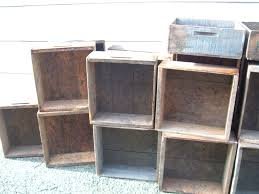 Life on the periphery offers perspectives outside the box (when I say box I'm meaning myopic points of view), and I tend to analyze power structures and how people try to control other people. I'm not sure why I do this. I could focus on a million other things, but for some reason I have this moral (maybe overly righteous) compass that is insulted by destructive human actions (another Aspie syndrome). I understand and don't understand why we destroy each other. Because of this my brain is constantly trying to discover solutions to our worst human tendencies. I want to fix populations, systemically, to stop destroying, ultimately, themselves.
Life on the periphery offers perspectives outside the box (when I say box I'm meaning myopic points of view), and I tend to analyze power structures and how people try to control other people. I'm not sure why I do this. I could focus on a million other things, but for some reason I have this moral (maybe overly righteous) compass that is insulted by destructive human actions (another Aspie syndrome). I understand and don't understand why we destroy each other. Because of this my brain is constantly trying to discover solutions to our worst human tendencies. I want to fix populations, systemically, to stop destroying, ultimately, themselves.
 That exposes where my own control issues coincide with the rest of the population. I'm not a saint and definitely not a purist. The evangelical engine doesn't only exist in major religions, but can speak to a quality in certain people to want other people to stop doing terrible things. But I like to think I also exist primarily on the periphery of myself, because I'm real good at self reflection. I'm good at criticizing myself and my own thought processes. I'm okay with being wrong, because being wrong is uncomfortable and that's the state of being I'm most comfortable in.
That exposes where my own control issues coincide with the rest of the population. I'm not a saint and definitely not a purist. The evangelical engine doesn't only exist in major religions, but can speak to a quality in certain people to want other people to stop doing terrible things. But I like to think I also exist primarily on the periphery of myself, because I'm real good at self reflection. I'm good at criticizing myself and my own thought processes. I'm okay with being wrong, because being wrong is uncomfortable and that's the state of being I'm most comfortable in.
 If I lived in a box of echoes, if I'm just as subject as anyone else, then I'd live in a box of echoes that disrupts other echoes, and subsequently other boxes. Maybe in my desire to stop destruction I am a destroyer, and my reflection is too ugly to look at because I don't want to realize it takes the collapse of one universe to begin the expanse of another, to rebuild one box we have to use the bloody walls from one taken apart. Maybe I want to keep my hands clean, and keep your hands clean, but in doing so...maybe it takes multi-unanimous conformity. Of which I cannot in good conscience participate.
If I lived in a box of echoes, if I'm just as subject as anyone else, then I'd live in a box of echoes that disrupts other echoes, and subsequently other boxes. Maybe in my desire to stop destruction I am a destroyer, and my reflection is too ugly to look at because I don't want to realize it takes the collapse of one universe to begin the expanse of another, to rebuild one box we have to use the bloody walls from one taken apart. Maybe I want to keep my hands clean, and keep your hands clean, but in doing so...maybe it takes multi-unanimous conformity. Of which I cannot in good conscience participate.
Support a Native owned Etsy shop, Allies United, where I offer unique merch for allies of social justice movements, like MMIW, Native Lives Matter and Black Lives Matter. Take a look inside my Etsy shop here: etsy.com/shop/AlliesUnited.
When Girard Married Freire: The Scapegoat Rides Praxis into the Sunset
It's about to get real nerdy in here. Turn around and walk away. Don't read any further. If you pass beyond this point of warning then all consequences will be your own and you will be held accountable. So... Do the right thing. Just stop reading now.If you're still with me, sucks to be you. But you were warned. What I'm about to do is elaborate on Paulo Freire's praxis by using Rene Girard's mimetic theory, See? I told it was getting nerdy up in this piece.Girard is the lens. Freire's praxis is the subject of study. If you've read any of my previous posts you'll have an understanding of Girard's mimetic theory. He basically, to make a point quickly, states mimesis is the "fuel" that creates culture, and the first pit stop is scapegoating. So when we're stressed, we scapegoat. We find someone to blame, we blame the person or people for all our problems (even if it's irrational), and then we either banish the scapegoat or kill the scapegoat (in either scenario we then idolize the scapegoat). This sequence makes us feel "all better," like momma patting us on the head when we have a booboo. Girard argues in the ritualization of scapegoating we create culture. We create customs, rituals, practices, celebrations, feasts, whatever you want to call it, we create culture through this production.If we use a major religion as way to look into Girard's point, such as Christianity, Girard would say Jesus and Satan are both scapegoats. One scapegoat "saves people," while the other scapegoat "seeks revenge," but both scapegoats, ultimately, keep people from fighting each other.Now Girard focuses on mimetic rivalry as his main point, and scapegoating is the only thing that stops mimetic rivalry. In other words, when "in fighting" occurs, we find a scapegoat so "we can all just get along." Mimesis is a nerdy way to say "monkey see, monkey do."In a Native context, we can say the current paradigm of colonization has set in motion a mimesis based in conquest (and all the paracolonial conditions it comes with). So this is where I bring in Friere. Friere's praxis is a heavily used (almost over used) term to show the societal "flip" when the oppressed minority reclaims power (education) from the colonizer and subsequently finds herself at a crossroads. "Will I use my power (education) to become a savior or the devil?" we might imagine a conscientious minority asking. This is a big subject of debate for a number of reasons. From my vantage point, it looks like the #1 reason is "the dominant culture doesn't want to lose power and become the victim of revenge." If anything hurts the dominant cultures' feelings, then we have to talk it to death as they can release all their anxiety onto the world. Take a chill pill papa smurf, this narrative is about Smurfette.Ultimately, the question becomes: Has the oppressed been infected with the disease of power by the oppressor? Do the oppressed not know where they end and the oppressor begins? If Girard had anything to say on this Native discourse (he's dead so good luck with that), then he would argue Natives are scapegoats returned, either back from the dead or back from banishment, like Jesus and Satan.So have I seen evidence of how the "flip" is going to play out? On a day to day basis, it looks like Natives love some power and we abuse each other with it (which is what the colonizer designed to happen, aka colonial mimesis). But as far as organizing that power to exact revenge against the dominant culture, I haven't seen it. We've all seen Natives function as "savior," when NODAPL attempted to stand up for clean water rights for everyone. On a macro level, Natives tend to do what's the best for everyone, which is why most of us are liberal in politics. On the micro level, Natives tend to do what's best for themselves, which is why most of us are socially conservative.So there it is: in all it's nerdery. Do you think Girard's scapegoat theory is applicable to Frerie's praxis? How do you think this will play out in a Native context?
If Girard had anything to say on this Native discourse (he's dead so good luck with that), then he would argue Natives are scapegoats returned, either back from the dead or back from banishment, like Jesus and Satan.So have I seen evidence of how the "flip" is going to play out? On a day to day basis, it looks like Natives love some power and we abuse each other with it (which is what the colonizer designed to happen, aka colonial mimesis). But as far as organizing that power to exact revenge against the dominant culture, I haven't seen it. We've all seen Natives function as "savior," when NODAPL attempted to stand up for clean water rights for everyone. On a macro level, Natives tend to do what's the best for everyone, which is why most of us are liberal in politics. On the micro level, Natives tend to do what's best for themselves, which is why most of us are socially conservative.So there it is: in all it's nerdery. Do you think Girard's scapegoat theory is applicable to Frerie's praxis? How do you think this will play out in a Native context?
Support a Native owned Etsy shop, Allies United, where I offer unique merch for allies of social justice movements, like MMIW, Native Lives Matter and Black Lives Matter. Take a look inside my Etsy shop here: etsy.com/shop/AlliesUnited.
(Disclaimer, aka Works Cited: The image was borrowed from www.hediedformygrins.blogspot.com)
Scrutiny of Dark Skinned Males
Do you think you watch the behavior of dark skinned males more closely than other people? Maybe you feel you don't. Then you have to watch this video:
Support a Native owned Etsy shop, Allies United, where I offer unique merch for allies of social justice movements, like MMIW, Native Lives Matter and Black Lives Matter. Take a look inside my Etsy shop here: etsy.com/shop/AlliesUnited.
https://www.youtube.com/watch?v=ucEAcIMkS0c&list=PLvNwXBBRe6tbZRj5e6t6DxnnByN4sj13R&index=1
The Art of Running Into Flames
When I think about creativity, or the impulses to create, and how there is a certain bravery or cowardice involved, I think of forest fires. You see, my cousins were fire fighters for the Kiowa Tribe of Oklahoma. I love it when they regale me with stories of their adventures and sometimes these are about disaster relief, like following Hurricane Katrina, and other times they are about fighting large forest fires in Colorado or California. They tell me, "If the wind catches the flames and rushes the fire toward you, you have to decide: are you going to run through the flames?"
 On the other side of the fire is safety. But you have to have a working knowledge of how fire thinks and the natural elements and maybe even the cosmos.
On the other side of the fire is safety. But you have to have a working knowledge of how fire thinks and the natural elements and maybe even the cosmos.
Creativity is the same, or why we create. I think of this stuff often. Usually in early morning hours when I'm drinking my coffee. But this morning I thought about creativity and how to create strong fiction. I thought about being vulnerable and telling on yourself. This made me think of artists having to face the worst parts of themselves.
I don't know if this is an act of bravery or an act of cowardice. It seems I'm creative out of survival and in coping with the traumas of life I create. I play with my toys and pretend the world isn't falling apart. But in that pretend I'm also facing the thing I'm hiding from. As I write or play guitar or paint on canvas or sing a song I have to confront the trauma in order to be my most creative.
For the story to be perfect, I have to be honest about who I am and what I was and who I'm becoming. I have to tell on myself. I have to confront not only those clichéd demons but more importantly my victimhood.
I'm running into the flames, whether out of instinct or awareness, I know on the other side of the flames there's safety. But is it an act of bravery or cowardice? Am I running into the flames to save myself?
Nonetheless, either way, I create.
Support a Native owned Etsy shop, Allies United, where I offer unique merch for allies of social justice movements, like MMIW, Native Lives Matter and Black Lives Matter. Take a look inside my Etsy shop here: etsy.com/shop/AlliesUnited.
Mojo in the Groove: The Ebb and Flow of Creative Writing
The most dangerous thing you're going to do is drive. Because of the frequency in which we drive and the comfort we get from believing we've mastered techniques to maintain proper focus, we get into that "conscious incompetence" space where we increase our likelihood of being in an accident. Similarly, I seem to find myself doing the same with my writing, driving on automatic. I'm cruising along and I'm not paying attention to my surroundings.
![AAGG0377[1]](http://static1.squarespace.com/static/643874327cc59128758e81fe/643f1653aaff1a0b48a209bb/643f1654aaff1a0b48a20a3d/1681856084227/aagg03771.jpeg?format=original)
The most frustrating aspect of writing for me right now is maintaining consistent focus. Yeah I get up and turn on the computer and I stare at the screen and I move one word here and one word there, but what am I really doing? I'm on automatic.
Aaaaaaaaaaaaaaaaaaaaaaaaahhhhhhhhhhhhhhhhhhhhhhhhhhhhh!!!!!!!!!!!!!!!!!!
I need to wake up. I wrote the majority of my master's thesis inside a week. But I had such an intense focus and completed months of research before that week. I was prepared because I was paying attention.
I'm sitting on my first novel. 15 chapters completed. I'm editing. Revising. Doing the sweeps I do at this stage as I go through and pull out the voice and insert details that will bring the story to life, breathing spirit into the pages.
This is the most exciting part of writing. I like all the stages, but I like the final revision stage the best. It's great to see how characters come alive with metaphors and description that you didn't know you had in you. I like the struggle and the element of surprise when I finally capture something in a unique and powerful way. It's like dropping the game winning shot.
So why am I coasting? What happened to my drive? Maybe I hit a wall and I need to see myself through it. Maybe I'm waiting for my second wind. Maybe I better figure all this out before something happens and I miss the opportunity I've been working so hard to obtain.
Support a Native owned Etsy shop, Allies United, where I offer unique merch for allies of social justice movements, like MMIW, Native Lives Matter and Black Lives Matter. Take a look inside my Etsy shop here: etsy.com/shop/AlliesUnited.